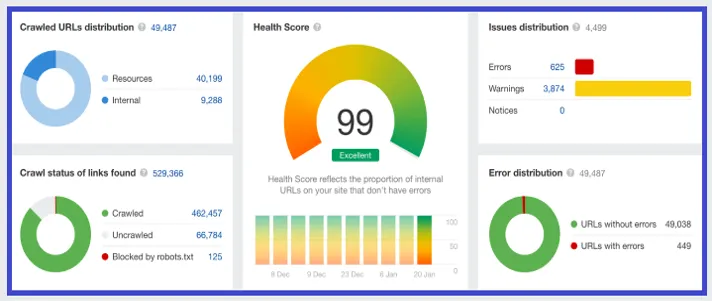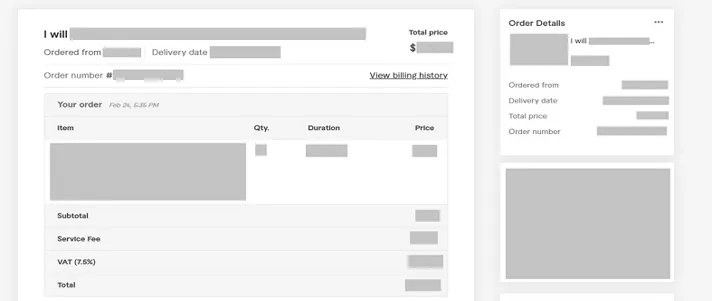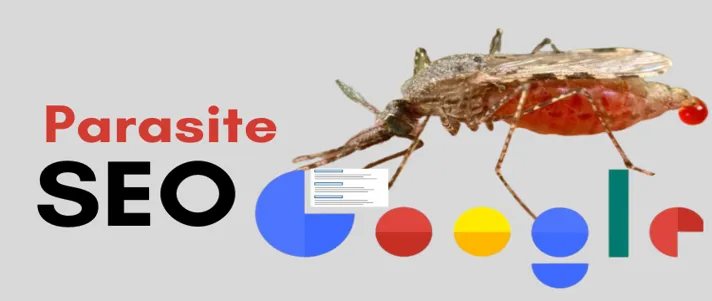Parasite SEO: A Cunning Strategy to Boost Your Online Presence
Search Engine Optimization (SEO) is hard, especially when you are eyeing the competitive top of the Google and Bing SERPs, but Parasite SEO is one strategy that can allow you to break in with relative ease, though it’s both intriguing and controversial.
So what exactly is parasite SEO, and how can it be leveraged to take your ranking into your own hands?
Let’s dive in.
What is Parasite SEO?
Parasite SEO is a technique where you leverage the authority of one or more well-established websites to rank for competitive keywords.
Instead of building your site’s authority from scratch, you’re essentially “parasiting” off the reputation of a high-ranking site.
For example, you might create a page on a platform like Medium or LinkedIn, targeting specific long-tail, high-volume keywords.
Since these platforms already have high domain authority, your content gets to rank much more quickly.
How Does Parasite SEO Work?
Parasite SEO can be approached through two distinct methods: Black Hat and White Hat.
Both have their unique characteristics, advantages, and disadvantages.
Method 1: White Hat Parasite SEO

White Hat Parasite SEO involves using ethical techniques that align with search engine guidelines.
It focuses on providing value to human users rather than just manipulating search engine algorithms.
Activities of White Hat Parasite SEO:
- Identify High Authority Sites: Look for platforms that allow user-generated content or sponsored posts and have high domain authority.
- Create Quality Content: Write engaging and informative content targeting specific keywords.
- Use Optimized Internal Links: Such as linking to the best SEO software tools to enhance your strategy.
- Follow Good On-Page SEO Practices: Including meta tags and keyword optimization.
- Get Natural (Organic) Inbound Links: Build relationships and earn backlinks.
- Prioritize Mobile-Friendliness: Ensure a seamless mobile experience.
Advantages of White Hat Parasite SEO:
- Ethical Techniques: Aligns with Google’s Webmaster guidelines.
- Long-term Strategy: Achieves high rankings organically.
- Builds Trust and Authority: Enhances website reputation.
Method 2: Black Hat Parasite SEO

Black Hat Parasite SEO, on the other hand, involves manipulative techniques that violate search engine guidelines.
It’s focused on quick gains but can lead to penalties.
Activities of Black Hat Parasite SEO:
- Use Invisible Text: Hide keywords within the page.
- Create Doorway Pages: Pages designed solely for search engines.
- Practice Cloaking: Show different content to search engines and users.
- Generate Blog Comment Spam: Spam comments with links.
- Participate In Link Schemes: Build unnatural backlinks.
- Use Keyword Stuffing: Overuse keywords without adding value.
Disadvantages of Black Hat Parasite SEO:
- Violates Guidelines: Goes against Google’s Webmaster guidelines.
- Short-term Strategy: Risk of penalties and loss of rankings.
- Damages Trust and Authority: This can harm the website’s reputation.
Understanding the difference between White Hat and Black Hat Parasite SEO is crucial for implementing a successful strategy.
While White Hat practices build a sustainable and ethical presence, Black Hat techniques can offer quick wins but come with significant risks.
By focusing on quality content, relevant keywords, and ethical practices, you can create a Parasite SEO strategy that not only ranks well but also resonates with your audience.
Check out the best SEO software tools.
Popular Sites Where People Carry Out Parasite SEO
We already know that parasite SEO is about leveraging high-authority websites to rank content quickly.
Here are some popular sites where people carry out parasite SEO:
- Medium: A platform for writers to share their thoughts and ideas.
- Reddit: A community-driven site where users can post content in various subreddits.
- Quora: A question-and-answer platform that allows users to post content related to specific queries.
- Google Sites: A free website builder by Google.
- Tumblr: A microblogging site that allows users to post multimedia content.
- Instagram: A social media platform that can be used as a parasite site.
Additionally, there are specific sites that are known for parasite backlinks, such as:
- Free Ads Time
- H1 Ad
- Gigantic List
- Wall Classifieds
- Classifieds Factor
- Si
- Finder Master
- Advertise Era
- Olo Games
- Dallasnews
- Digital Marketing Hints
- Clickooz
- Timesunion
How Does Parasite SEO Make Money?
Parasite SEO can monetize through various channels, even on platforms that aren’t theirs.
Here’s how:
1. Affiliate Marketing: The Power of Commissions

Imagine discovering a product that perfectly aligns with your audience’s interests. With Parasite SEO, you can create content on high-authority platforms that promote this product through affiliate links. Every click that leads to a sale earns you a commission.
It’s like being a virtual salesperson, connecting people with products they’ll love, and earning a reward for every successful match.
The key here is authenticity and alignment with your audience’s needs and interests.
When done right, affiliate marketing through Parasite SEO can be a win-win for everyone involved.
2. Lead Generation: Connecting Businesses with Potential Customers

Think of lead generation as a form of matchmaking. You’re identifying individuals who have an interest or need in a particular area and connecting them with businesses that can fulfill that need.
With Parasite SEO, you can create targeted content that captures these leads, whether through sign-up forms, surveys, or other interactive elements.
Then, you can sell these leads to businesses looking to expand their customer base.
It’s a dynamic and interactive way to monetize content, creating value for both businesses and consumers.
3. Promoting Own Products/Services: Your Personal Showcase

Do you have a unique product or service that you believe in passionately? Parasite SEO can be your virtual showcase, allowing you to leverage the authority of established platforms to drive traffic to your offerings.
It’s like setting up a shop in a bustling marketplace, where potential customers are already browsing.
By creating engaging and informative content that highlights the benefits and uniqueness of your products or services, you can attract interested buyers and direct them to your own site for purchasing.
It’s a creative way to amplify your reach and introduce your offerings to a broader audience.
4. Ad Revenue: The Indirect Path to Profits

While platforms like Medium may not allow you to earn directly from ads, there’s an indirect path to profit.
By creating compelling content that draws readers in, you can include links or calls to action that redirect them to your own site.
Once there, you have control over ad placements, and you can earn revenue from clicks and impressions.
It’s like inviting guests from a public square into your private gallery, where you can offer them more and benefit from their engagement.
This strategy requires careful planning and seamless integration to provide a smooth and enjoyable user experience.
How Much Money Parasite SEOs Make
The earning potential of parasite SEO varies widely based on the niche, the platforms used, the monetization strategy, and the effectiveness of the SEO tactics.
Some individuals may earn a few hundred dollars a month, while others might make thousands. It requires strategic planning, continuous effort, and monitoring to maximize earnings.
- Low Competition Niches: $100 – $1,000 per month.
- Moderate Competition Niches: $1,000 – $5,000 per month.
- High Competition Niches: $5,000 – $20,000+ per month.
What Is the Cost of Parasite SEO?
Parasite SEO can be relatively low-cost, especially when using free platforms. However, there are some expenses that might be incurred, depending on the strategy:
- Content Creation: If you’re writing the content yourself, the cost might be minimal. However, if you’re outsourcing, it could range from $10 to $100 per article, depending on the quality and length.
- Platform Publication Fees: Some high-authority sites may charge for publishing content, especially for sponsored posts or guest posts. These fees can vary widely, from $50 to $1,000 or more, depending on the site’s reputation and audience reach.
- SEO Tools: Investing in tools like the best SEO software can enhance your strategy. The cost for these tools can vary widely, from free options to premium tools that might cost anywhere from $30 to $300 per month.
- Promotion: Costs related to promoting content through ads or social media can also vary. A modest budget might start at $50 per month, but it could easily escalate if you’re running extensive campaigns.
The cost of parasite SEO can be quite flexible, ranging from almost nothing if you’re doing everything yourself on free platforms, to several hundred or thousands of dollars per month if you’re investing in quality content, cost of publication sponsored content, tools, and promotion.
It’s a strategy that can be tailored to fit various budgets and goals.
Examples of Parasite SEO (A Walk-Through Real-World Scenario of Doing Parasite SEO)
Imagine stumbling upon a high-potential keyword with significant search volume and low competition. You decide to seize this opportunity through parasite SEO.
Here’s a step-by-step walk-through:
1. Identify a High Authority Site

You find a reputable site that allows user-generated content or offers sponsored posts or both. You recognize that a sponsored post on this high-authority site could give your content the boost it needs.
2. Negotiate a Sponsored Post

You reach out to the site’s owner and negotiate a deal for a sponsored post. The cost might range from $100 to $1,000, depending on the site’s authority and audience reach.
3. Order Content

You head to Fiverr and place an order for content targeting the potential keyword, spending around $50 for a well-written article.
4. Optimize and Monetize

You review and optimize the content, adding affiliate links or other monetization methods.
5. Publish

You publish the content as a sponsored post on a high-authority site, ensuring it’s SEO-friendly.
6. Promote
You share the content across social media and other channels, investing perhaps another $50 in targeted promotion.
7. Monitor and Adjust

You keep an eye on the performance, making necessary adjustments to keep the content ranking well.
8. Celebrate

And in a matter of days or weeks, your content ranks on page #1 of Google SERP. That’s the power of parasite SEO!
By leveraging the authority of established platforms and strategically investing in sponsored content, parasite SEO can provide a quick and cost-effective way to rank content and monetize it.
It’s a strategy that requires careful planning, execution, and adherence to ethical practices to be successful.
This real-world scenario illustrates how parasite SEO is not just about using open platforms but also about strategically investing in opportunities like sponsored posts and guest posts.
It’s a multifaceted approach that can yield significant results when done right.
Pros and Cons of Parasite SEO
Pros
- Quick Rankings: Leveraging the authority of a high-DA site means your content can rank faster, sometimes within days or even hours. This is especially valuable for trending topics or time-sensitive campaigns.
- Cost-Effective: Parasite SEO can be a budget-friendly way to compete for high-competition keywords. Whether using free platforms or investing in sponsored posts, it often requires less investment than building and promoting a new site.
- Builds Backlinks: You can create backlinks to your main site, boosting its SEO. These backlinks from authoritative sites can enhance your site’s credibility and ranking.
- Testing Ground: Parasite SEO allows you to test new ideas, niches, or products without the commitment of building a full website. It’s a way to gauge interest and gather data before making significant investments.
- Reputation Management: By controlling content on high-ranking platforms, you can manage your online reputation, promoting positive content, and mitigating negative exposure.
Cons
- Lack of Control: The host site has control over your content and can remove or alter it at any time. This lack of ownership means you’re at the mercy of the platform’s rules and decisions.
- Ethical Considerations: Some view this strategy as manipulative or unethical, especially if done irresponsibly. Transparency and adherence to best practices are essential to maintain credibility.
- Potential for Over-Saturation: If too many people use the same platforms for Parasite SEO, it can lead to over-saturation and reduced effectiveness. Strategic selection of platforms and diversification are key.
- Dependency on Third-Party Platforms: Your success is tied to the continued authority and reputation of the host site. Changes in their policies, rankings, or public perception can impact your content’s performance.
- Short-Term Focus: Parasite SEO often provides quick results but may not be a sustainable long-term strategy. It’s best used in conjunction with other SEO strategies for a balanced approach.
How to Enhance Parasite SEO with the Right Tools
Utilizing the right tools can make your Parasite SEO strategy more effective. From keyword research to backlink analysis, the best SEO software tools can provide the insights and automation you need.
When Should You Use Parasite SEO?
Here are some scenarios when you might consider using Parasite SEO:
- Quick Ranking: If you need to rank content quickly for a trending topic or timely opportunity, Parasite SEO can be an effective way to achieve fast results.
- Competitive Keywords: For highly competitive keywords where it’s challenging to rank with a new or low-authority site, Parasite SEO can provide a way to compete by leveraging the authority of established platforms.
- Limited Budget: If you’re working with a limited budget and can’t invest heavily in building and promoting your own site, Parasite SEO can be a cost-effective way to get your content in front of an audience.
- Testing Ideas: If you want to test a new niche, product, or content idea without committing to a full website build, Parasite SEO allows you to gauge interest and gather data.
- Building Backlinks: Parasite SEO can be used as part of a broader SEO strategy to build backlinks to your main site, enhancing its authority and rankings.
- Complementing Your Main Site: If you already have a main site but want to expand your reach and visibility, Parasite SEO can complement your existing efforts by targeting additional keywords and audiences.
- Reputation Management: If you’re looking to manage or improve your online reputation, Parasite SEO can help you control the narrative by ranking positive content on high-authority platforms.
- Affiliate Marketing: For affiliate marketers looking to promote products without building a full website, Parasite SEO offers a way to create targeted content that can rank and convert.
It’s important to note that Parasite SEO is not a one-size-fits-all solution.
It requires careful consideration of your goals, the competitive landscape, and ethical considerations. While it can offer significant advantages in the right circumstances, it may not be suitable for every situation.
Understanding when and how to use Parasite SEO, including the potential risks and rewards, can help you make informed decisions that align with your overall marketing strategy and objectives.
Parasite SEO Vs Link Buying
While both Parasite SEO and link buying aim to improve search engine rankings, they differ in their approach, costs, risks, and potential rewards.
Parasite SEO focuses on leveraging existing platforms to rank content, while link buying is a more direct approach to building backlinks.
Hence, parasite SEO and link buying are two distinct strategies but both are used to improve search engine rankings.
While they may seem similar in their goal to enhance visibility, they operate on different principles and have unique advantages and disadvantages.
Parasite SEO
Definition: Parasite SEO involves leveraging high-authority platforms to host content that ranks quickly. It may include user-generated content, sponsored posts, or guest posts.
Pros:
- Cost-Effective: Can be done on a limited budget, especially on platforms that allow free user-generated content.
- Quick Results: Can achieve fast rankings for competitive keywords.
- Flexibility: Allows for experimentation and targeting of various niches.
Cons:
- Less Control: You don’t own the platform, so changes or removal of content can occur.
- Ethical Considerations: Must be done responsibly to avoid potential penalties.
Link Buying
Definition: Link buying involves purchasing backlinks from other websites to improve the authority and ranking of your site. It’s a direct way to build backlinks, often through brokers or the best link builders.
Pros:
- Control: You choose where to buy links and negotiate terms.
- Targeted Strategy: Can be used to build links to specific pages or content.
- Potential for High Impact: Quality links from reputable sites can significantly boost rankings.
Cons:
- Cost: Can be expensive, especially for high-quality links.
- Risk of Penalties: If done irresponsibly, it may lead to penalties from search engines.
- Ethical Considerations: Must be transparent and adhere to search engine guidelines.
Conclusion
Parasite SEO is a unique and cunning strategy that can provide quick wins in the competitive SEO landscape. While it has its risks and ethical considerations, when done right, it can be a valuable part of your SEO toolkit.
Remember, the success of any SEO strategy, including Parasite SEO, lies in understanding your audience, creating quality content, and using the right SEO tools, to optimize your efforts.
Parasite SEO is not just a tool for ranking content; it’s a versatile and creative way to monetize your efforts.
From earning commissions through affiliate marketing to connecting businesses with leads, promoting your own products, and even finding indirect paths to ad revenue, the possibilities are vast and varied.
Like any strategy, success with Parasite SEO requires understanding your audience, offering genuine value, and navigating the platforms with integrity and skill.
It’s a journey filled with opportunities, challenges, and the potential for rewarding connections and profits.
Whether you’re an entrepreneur, a marketer, or simply someone with a passion to share, Parasite SEO offers a canvas to paint your vision and a bridge to connect with those who will appreciate and benefit from it.
Here are some
Frequently Asked Questions (FAQs) about Parasite SEO
Parasite SEO can be both white hat or black hat, depending on the methods used. Ethical practices align with search engine guidelines, while manipulative tactics can be considered a black hat.
If done responsibly, Parasite SEO shouldn’t harm your main site. However, unethical practices can lead to penalties or negative associations, so caution and transparency are key.
Results can be seen quickly, sometimes within days or even hours, due to the high authority of the host platforms.
Parasite SEO is often used for quick wins and may not be a sustainable long-term strategy on its own. It’s best combined with other SEO strategies for a balanced approach.
Ethical considerations include transparency, adherence to platform rules, and avoiding manipulative tactics. Responsible practices help maintain credibility and avoid penalties.
Parasite SEO can be done independently if you have the necessary skills and knowledge. However, hiring a professional can ensure strategic alignment, quality execution, and compliance with best practices.

